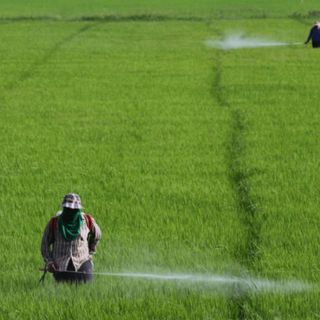Scientists from the European Union’s Copernicus Climate Services announced that September 2020 is officially the hottest September on record. This September was 0.05°C warmer than September 2019, which held the previous record for the warmest September.
This, alongside January and May this year, means 2020 has had three historical record-breaking months with respect to high temperatures. In particular, September’s unusual temperatures hit Middle Eastern countries, North African countries, Paraguay, Brazil, the region of Siberia in Russia, and Tibet. Much of Europe also saw its hottest September in 2020, and the month the second-warmest September on record in Australia.
Copernicus scientists state that 2020’s temperature anomalies are tracking the patterns of 2016 — which is the hottest year ever on record. With three months left in the year, scientists state that certain ocean-atmosphere-climate phenomena, like La Niña, will influence if 2020 surpasses 2016’s heat.
“As we go into an even warmer world, certain extremes are likely to happen more often and be more intense,” Copernicus senior scientist Freja Vamborg told Reuters, pointing to heat waves and periods of intense rain as examples. “That is the key point. The Earth has warmed a lot, and it will carry on warming if greenhouse gas emissions continue at the rate they are at the moment.”
Related on The Swaddle:
Study: India Could Become Uninhabitable In 50 Years If Greenhouse Emissions Continue
High temperatures in 2020 have played a major role in a spate of disasters ranging from wildfires to heavy monsoon downpours and floods to a massive, unprecedented heatwave in the Siberian Arctic. Samantha Burgess, deputy director of the Copernicus Climate Change Service, told BBC News: “Some of these events are extraordinary – although we mustn’t create a false expectation that temperatures will go up year on year. Climate and weather are highly variable. But we predicted that these sort of events would happen, given our effect on the climate.”
Ed Hawkins, a climatologist from Reading University, told BBC News, “We have been saying this for decades: more and more greenhouse gases will lead to more and more warming.” He added, “One degree of heating is dangerous for some people, as we’ve seen. Two degrees is more dangerous still, and three degrees even more dangerous. We really don’t want to find out what that’ll be like.”




